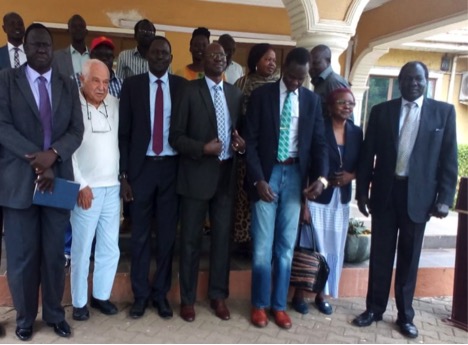Sudan People’s Liberation Movement (SPLM) party, the country’s ruling party is backing a proposed dredging of the Naam River in Unity State and some rivers in Bahr El Ghazal region.
Kuol Atem Bol, the SPLM Secretary for Political Affairs revealed this on Friday while meeting water experts who recently participated in public awareness forum on dredging of the Nile and its tributaries.
“We have agreed, the SPLM is for the interest of the people of South Sudan regardless of the impact of global warming, the SPLM is for clearing of rivers,” Bol told journalists in Juba.
He disclosed that the party’s decision is informed by the need to ease water transport.
“The issue of dredging is pure technical work it should be given time so that a team can now have a wider consultation scientifically,” he disclosed.
The Unity state government in June received dredging equipment from the Egyptian government for opening the Bahr-El Ghazal basin including dredging the Naam River, the Nile River and other tributaries.
Some officials earlier downplayed the negative impacts of dredging activities, saying they will instead help to mitigate flooding in Upper Nile and Bahr el Ghazal regions.
However, President Salva Kiir who is the Chairperson of the SPLM recently suspended the project until proper environmental impact studies are conducted.
Tag Elkhazin, a senior water expert said during the five- day public consultation facilitated by the government that leaders need to work for the interest of the country.
“The leadership of the SPLM wherever we manage to throw light or wherever things have gone wrong they will change the course and they will take the right course for the interest of people,” Alkhazin said.
Deng Majok Chol, a PHD student specializing in water management at Oxford University, said the country needs to devise proper ways of managing resources.
“We need to take responsibility to be able to care for the resources of this country including water resources for the citizens of this country so that we have a transformation of our own socio-economic development,” Chol said.
















